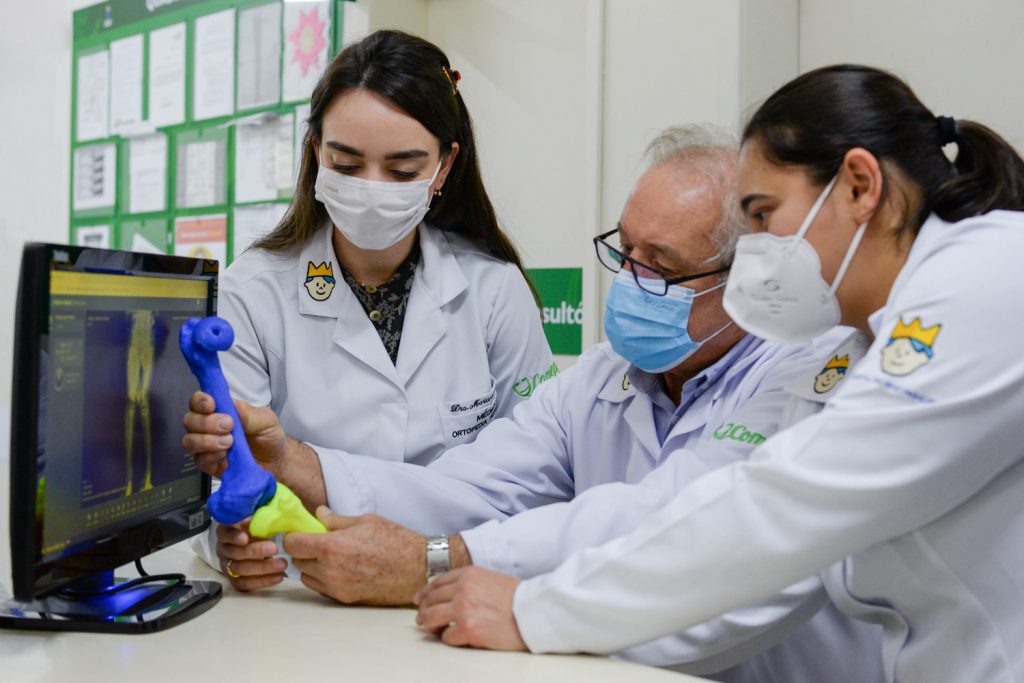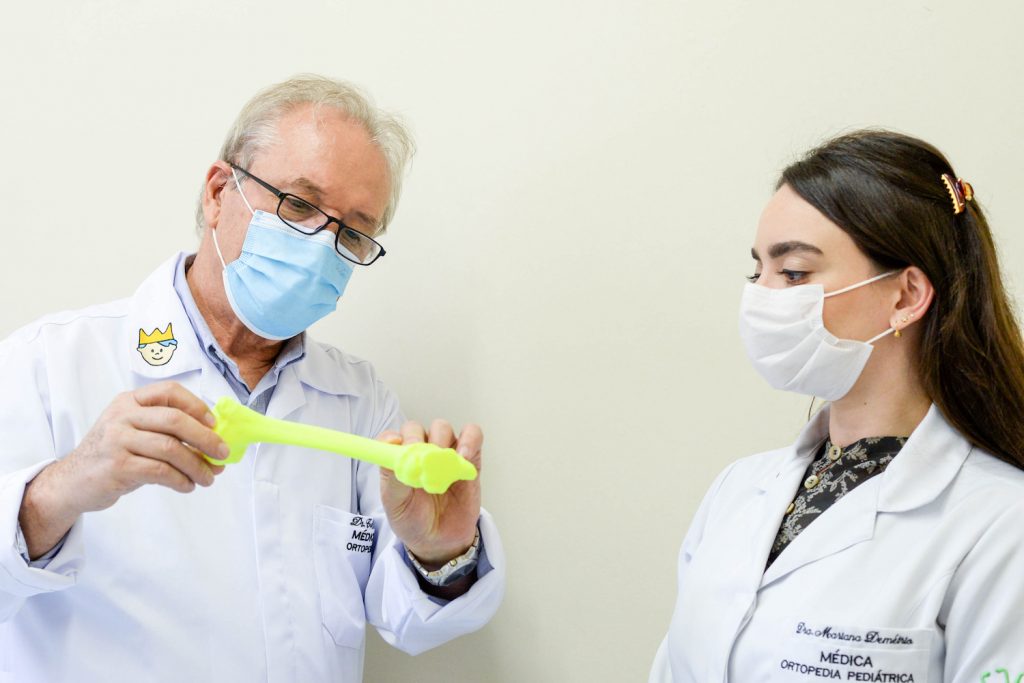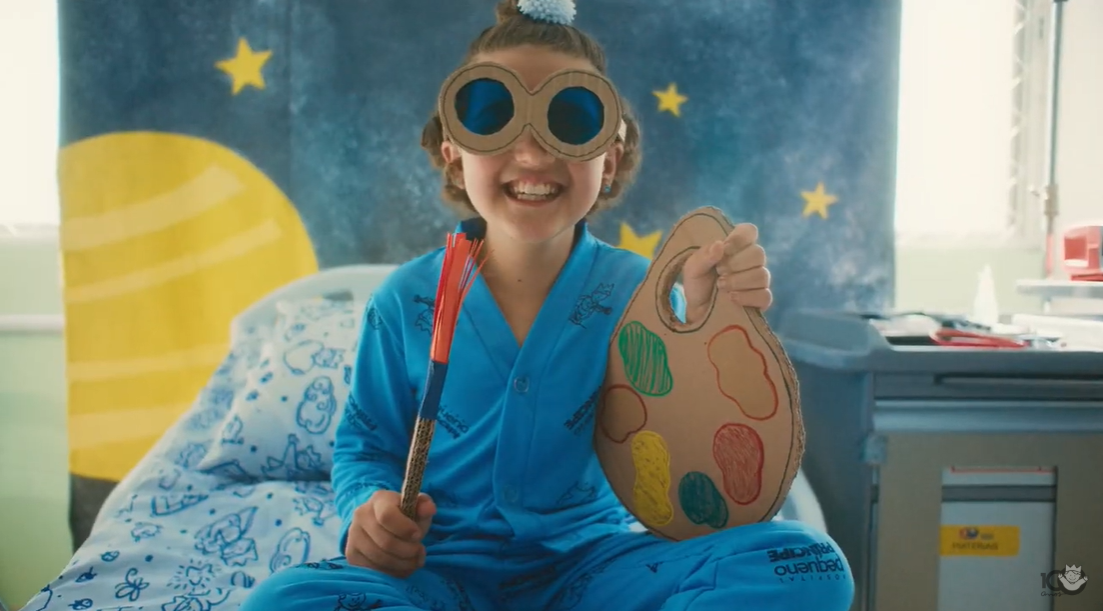3D printing contributes to the planning of orthopedic surgeries
Innovative method makes it possible to predict the exact size of implants and expands physicians’ perception of deformities before the start of surgery; It also facilitates the family’s understanding of the disease and treatment
The Orthopedics Service of the Pequeno Príncipe Hospital is one of the largest in Brazil dedicated exclusively to the care of children and adolescents. One of its differentials is the severity of the cases assisted. In addition to the small fractures suffered by energetic children in childhood, the Service takes care of patients with rare diseases with complex congenital and/or acquired deformities, in addition to other conditions that compromise healthy development.

These conditions often require quite complex surgeries to restore patients’ quality of life. And to assist in these surgeries, the Pequeno Príncipe Hospital is innovating with rapid prototyping technology, popularly known as 3D printing,. With this technology, doctors are reproducing the child’s deformity to assist in making surgical decisions.
“For example, if we are going to operate on a limb with a major deformity, we 3D print the child’s model, based on their imaging tests. With the prototype in hand, we are able to understand more the disease, and we better identify the location where to intervene in the patient’s bone, reduce the procedure time and the risks associated with major surgeries, and increase the efficiency of our procedures,” assures the head of the Pequeno Príncipe Hospital Orthopedics Service, Luiz Antonio Munhoz da Cunha.

The orthopedist Mariana Demétrio de Sousa Pontes, who is in charge of the printings, says that another great advantage is the possibility of predicting the exact size of the implants needed for each patient. “In children, at different stages of growth, 3D printing allows us greater precision,” she explains.
According to her, there is also the benefit of family education. “When the family sees the printing of their child’s bone, in actual size, and we explain the disease and the proposed treatment, we have observed a better understanding on the part of parents and guardians. Medical students and resident physicians also benefit from the new methodology.”
Orthopedics Service
The Orthopedics Service at Pequeno Príncipe Hospital performs around 20,000 outpatient visits per year and 2,000 admissions. The vast majority of cases are surgical. There are 1,800 surgeries per year, and approximately 60% of the procedures are overly complex. The Hospital has all the necessary structure to support imaging diagnosis, interaction with professionals from other areas of medicine and support in rehabilitation. In the Surgical Center, it maintains one of the most modern rooms in Brazil, equipped with an image intensifier and surgical tables suitable for the distinct types of procedures performed.
More
Pequeno Príncipe Gala celebrates the reunion for life
The event will once again be held in person on October 14, at 6 p.m., at Gotham Hall, in New York
Pequeno Príncipe starts TV campaign to raise funds
The initiative seeks to mobilize society to support the cause of children’s health. Donations can be made at www.salvarvidas.org.br









